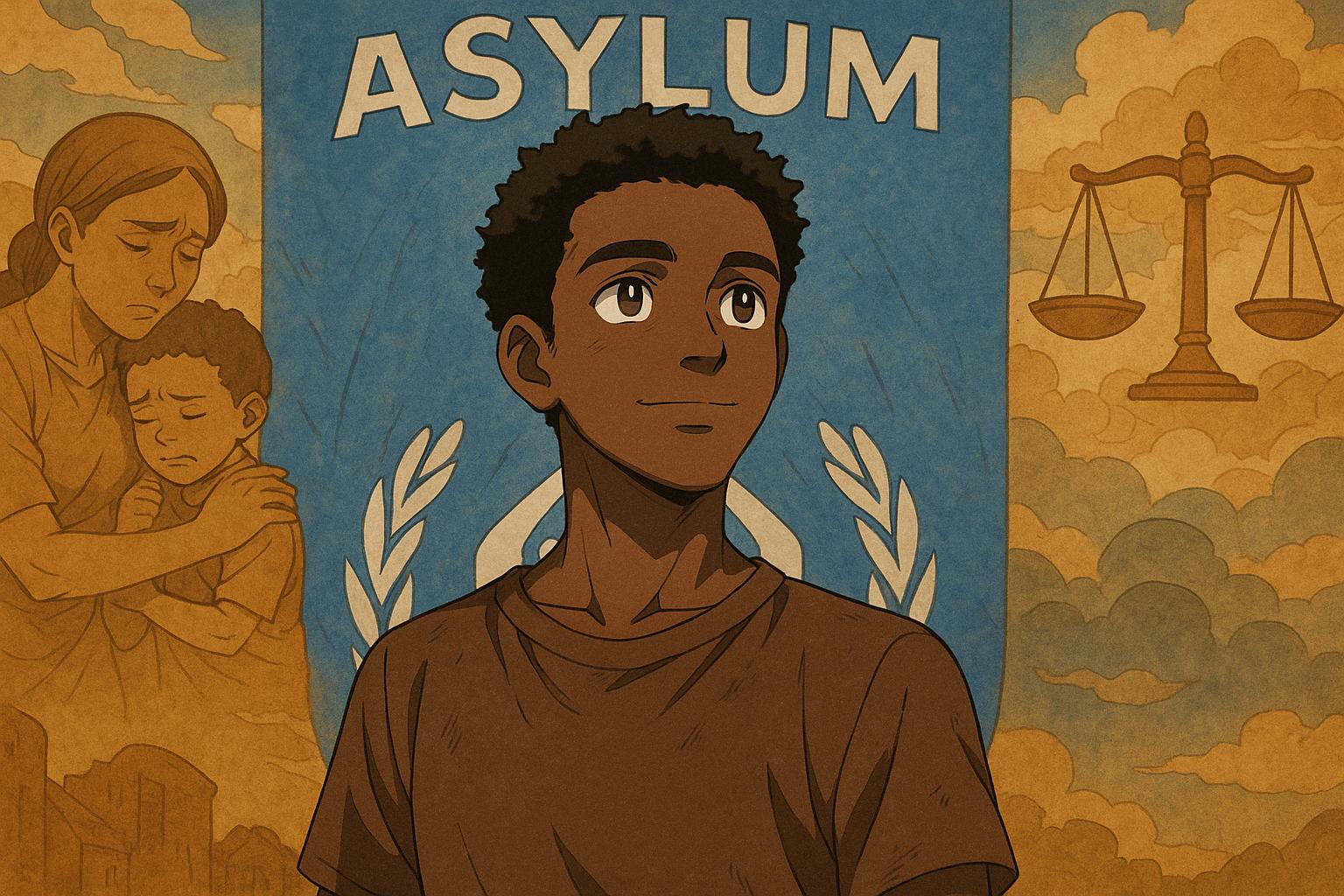A recent ruling by a UK immigration tribunal has underscored the complexities of asylum decisions, particularly in cases where applicants face severe dangers upon returning to their home countries. An unnamed man from Guinea, West Africa, in his early twenties, was granted permission to remain in Britain after the tribunal acknowledged the severe risks he would face if deported, specifically punishment from his stepmother, who had previously subjected him to physical abuse.
This case is emblematic of the broader issues surrounding immigration and asylum in the UK. The tribunal heard that the man's traumatic childhood began when his biological parents died in a car accident when he was only 14. Left under the care of his father’s first wife, he faced relentless exploitation and abuse. This scenario is not uncommon in Guinea, where children from previous marriages often find themselves vulnerable to mistreatment. According to some reports, such children frequently endure hard labour and various forms of violence, as familial hierarchies dictate their treatment within the home.
The tribunal’s decision reflects a growing recognition of the systemic issues faced by asylum seekers from Guinea and similar regions. Child protection and welfare remain significant concerns, with many facing conditions that can lead to severe emotional and psychological trauma. A Human Rights Watch report details harrowing accounts of young girls in Guinea, akin to the experiences described by the asylum seeker, who are often sent to live with relatives only to be met with harsh conditions that exploit their vulnerability.
Moreover, the narrative of abuse by stepmothers is not isolated to this case. A series of tragic incidents globally underline the dangers many children face in similar domestic situations. For instance, the heartbreaking case of Emani Moss in the United States involved a child subjected to extreme violence and eventual death at the hands of her stepmother. Such cases raise pressing questions about the efficacy of child protection systems and highlight the urgent need for vigilant measures to prevent such abuses.
This ruling also serves to emphasise the challenges faced by immigration tribunals in balancing the rights of individuals against broader public concerns around immigration policy. The case of this Guinean asylum seeker was not unique; other similar cases, including one involving a convicted Zimbabwean paedophile and an asylum seeker reportedly misidentified by a legal judge, illustrate the nuances and potential inconsistencies in the system. Asylum decisions frequently require judges to weigh personal safety against legal frameworks, often leading to controversial outcomes.
As the UK navigates its immigration landscape post-Brexit, this case may serve as a pivotal point for debate surrounding the treatment of vulnerable individuals seeking refuge. It highlights the importance of context and compassion in asylum adjudication, as well as the need for systemic reform to ensure that such vulnerable populations are adequately protected from exploitation and harm.
Ultimately, the ongoing discussions surrounding this ruling reflect broader societal challenges, where issues of justice, protection, and the rights of individuals must be thoroughly examined and addressed.
Reference Map:
Source: Noah Wire Services
